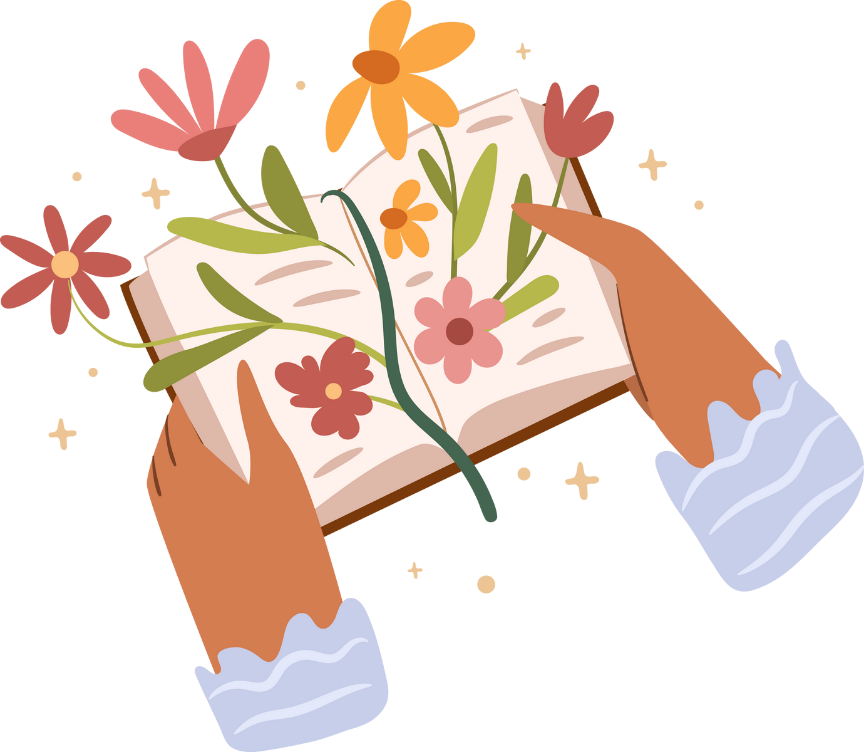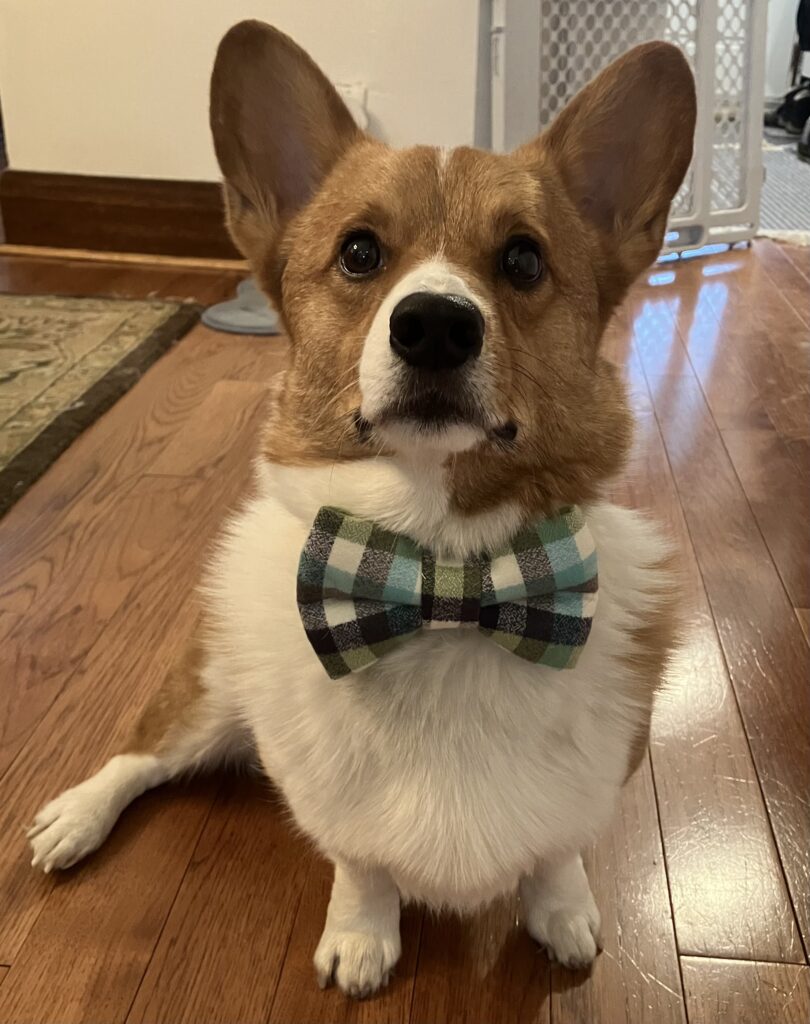Gaming Through Cancer Without Cheat Codes
Author: Jason Truong

It started out as a lighthearted December night. A short break to relax before I prepared for another day of school. On my laptop was an old video game that me and my sister were playing. Then the phone rang. The call from my doctor was devastating.
"Throughout my life video games have helped me when times were rough..."
In the dead of the night, my dad and I were on our way, stepping through puddles of rain in a dark alley. I went from place to place, and after trials and tribulations, I ended up in the emergency room at the Children’s Hospital in London, Ontario, hooked up to an IV and watching old cartoons on Nickelodeon. I cannot clearly recall the series of events—it was as if I was in a daze the whole night. In the end, I was diagnosed with chronic myelogenous leukemia (CML), a relatively rare cancer in children. I was 14 years old.
The first days of my hospital stay were without rest. However, this all changed when a support program at the hospital called Youth CoRE gave me the opportunity to play Nintendo Switch games with an opponent. With this, my days seemed brighter and flew by.

After returning home from 10 days in hospital, I went back to my daily routine of online school. I fondly remember finishing my homework as soon as I could to boot up my laptop, and diving into an exciting game. The shining highlight of my first and second years of high school was the immersive experience of those games, worlds vibrant and inexhaustibly explorable far and wide, together with unique storytelling, music and art direction.
As time went on, online classes became harder to bear. One day, I just couldn’t see the point anymore. For my 11th year, I returned to in-person learning. My first day back at school was disheartening. I knew nobody. I felt like I didn’t even know myself. I lost sleep and I noticed I was rarely playing video games, if at all.
Eventually, I tried to make time to start playing again. My first title was NieR:Automata, which I had been anticipating for many years. This game’s narrative explores philosophical themes within a narrow context: the search for the meaning of existence, the reason to keep on fighting, and the subject of identity loss, all amidst a war and chaos. It resonated with me deeply. Rediscovering my passion for video games allowed me to reconnect and have fun with my friends, even as all of us got busier.
Throughout my life video games have helped me when times were rough; not only by playing them, but I have also been creating my own since the age of nine. Inspired by the dedication of game developers to their work, I have always thought, “I could be like them someday.”
After finishing a computer programming course in my final year of high school, I decided to take it on as my chosen field of study. In fall 2024, I am bound to start Computer Programming at St. Clair College to help widen my range of programming knowledge. For those who may be living through tough times, I want to inspire them to create, like many games and developers have inspired me.
Bio: Jason Truong is an 18-year-old CML survivor, still undergoing treatment. Here is a game that he created, inspired by Mario. Jason is also interested in sci-fi, anime and wildlife, including sharks and gentoo penguins.

- Castle Crashers
- Chocobo Racing
- Dragon Quest 11
- Final Fantasy XIII
- Muse Dash
- NieR:Automata
- Pokémon Black and White
- Resident Evil 4
- Scribblenauts
- Undertale
- Yakuza 0
- Yakuza Kiwami (much less explicit, equally violent as first)
My Fertility Journey
Author: Cassandra Watson
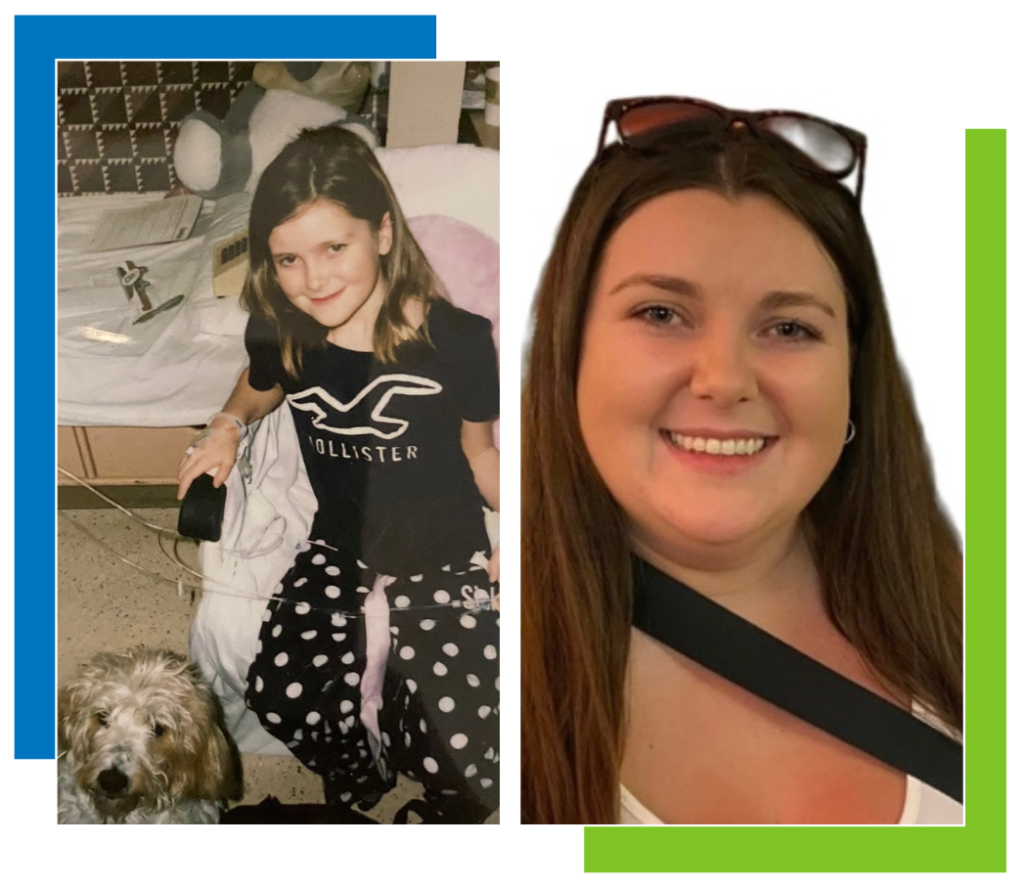
Living with a chronic condition can feel like riding a never-ending roller coaster—minus the fun parts, of course. My journey started with a spinal tumour diagnosis in 2009 (myxopapillary ependymoma, if you are into those fancy medical terms) which led to several surgeries and radiation therapy. Unfortunately, I ended up with chronic pain to manage, but I have to say these treatments made a significant difference. While this experience wasn’t exactly a walk in the park, it motivated me to advocate for others facing similar challenges, especially around fertility preservation. I’ll dive into that part soon!
Photo above: Left: Cassandra after first spinal surgery. Right: Cassandra now.
"Could my past medical experiences have an impact on my ability to have biological children in the future?"
Transitioning from pediatric to adult care has been quite a journey, and it is still challenging at times. I went from having a dedicated team supporting me in every aspect of my life to feeling like I was navigating my health on my own. I was familiar with Princess Margaret Cancer Centre from my radiation treatment, but the whole experience was pretty overwhelming. I made sure to ask my POGO Aftercare Clinic Nurse lots of questions, everything from learning how to check for lumps in my breasts? to understanding the potential impact of my past treatments on my body. One particularly important question I had was about my fertility: Could my past medical experiences have an impact on my ability to have biological children in the future?
That single question changed my life.

"The emotional toll is substantial, especially since, despite all my efforts, there is no guarantee of success."
Left photo: The daily medication injections for egg-freezing process
I learned that my AMH (anti-müllerian hormone) levels were low, indicating a low egg count, which led me to Mount Sinai Hospital’s fertility clinic. At 22 years old, the news that I didn't have much time was a shock. I had to weigh my options: have a child soon, freeze my eggs, or consider alternatives like egg donation or adoption. In the end, I chose egg freezing, which significantly shifted my life plans. The treatments were tough and the costs made things even more complicated. The emotional toll is substantial, especially since, despite all my efforts, there is no guarantee of success.
My radiation treatment affected my fertility, which is a topic that doesn't always get the attention it deserves. While fertility preservation is starting to come up more frequently in discussions with younger patients, it wasn't something that was brought up in my discussions with my health team. I feel this gap in communication and resources is an important issue that deserves more attention.
Navigating my fertility journey has been quite an eye-opening experience. It is understandable that when you’re focused on managing an illness, fertility can sometimes take a back seat. But for many, the ability to have children is a big deal. It can be frustrating to miss out on preservation opportunities simply because of a lack of information. It feels a lot like missing the boat. And who wants to miss the boat?
These experiences have inspired me to become a voice for others in similar situations. Advocacy goes beyond just pushing for medical advancements; it is also about making sure patients have the information and support they need to make informed choices about their futures. By sharing my story at events like the 2024 POGO AfterCare Education Day and through this article, I hope to encourage others to ask the right questions, seek the information they need and stand up for their own needs. If there is one lesson I have taken away, it is that you sometimes must be your own best advocate.
Recognizing that my experiences can help others has truly changed how I view my health challenges, seeing them not just as a burden, but as opportunities to make a positive impact in the community. Through advocacy, I aim to bridge the gaps in care and ensure that the next generation of patients has access to comprehensive support, particularly when it comes to fertility awareness. As I continue on this advocacy journey, I am genuinely excited to see what the future holds. My journey has shown me that while medical treatments are crucial, so is the support for the emotional and future aspects of life, like fertility. As health care continues to advance, let’s make sure to include these important conversations, making sure every child has the chance to lead a fulfilling life, both during and after treatment.
Creative Corner with Cartoonist Erica
Author: Erica DiVincenzo
Diagnosis: Ewing's Sarcoma (right arm).
I am a cartoonist. This is how I see the world in my mind. This is how I see people and animals. As early as Kindergarten, almost any attempt I made at art appeared as cartoons. This tendency became more obvious when I was 7 and spent a year at McMaster Children’s Hospital for cancer treatment. To make the time pass, I would draw. Almost always cartoons. I am very thankful that the doctors saved my drawing arm, which had bone cancer in it. I am still making cartoons every day and finding unique ways to use them in my career as an artist. Cartoons bring a lot of humour and joy to life.

Navigating Ontario’s Accessibility Act as a Childhood Cancer Survivor

As a childhood cancer survivor, I often think about the distinction between being “disabled” and living with a disability. Personally, I see myself as someone with a disability rather than being defined by it. My own journey involves various ailments and impairments resulting from treatments, and while some of us might use assistive devices like hearing aids, canes, prosthetics, walkers, or wheelchairs, others face invisible disabilities.
Regardless of whether a disability is visible or not, many of us encounter significant barriers and discrimination in everyday life—be it in customer service, access to information, employment, transportation, or even within natural and constructed environments. Often, these barriers stem from a lack of adherence to The Accessibility for Ontarians with Disabilities Act (AODA) of 2005. It’s important to remember that it isn’t simply about visual appearance; a brief scan doesn’t ensure adherence to the "Customer Service Standard" of the legislation.
I’ve always had an interest in public transit, so, I’ll use that as an example:
Imagine a TTC driver shouting at you to “use the back door!” While it’s generally advisable for passengers to use the back door to facilitate smoother boarding, those with disabilities should have the option to use the front door if needed. Disabilities aren’t always visible, and drivers should be cautious not to judge based on the presence of assistive devices alone. After all, the devices are just tools; the person’s disability is what matters.
Our experiences with accessibility can vary widely, and I encourage you to reflect on your own encounters with barriers and challenges. If you’re not yet familiar with The Ontario Human Rights Code and The Accessibility for Ontarians with Disabilities Act, 2005, I strongly recommend taking the time to review these important pieces of legislation.
Not so Alone After all
Author: Sara Payne

The future can be terrifying, but planning for mine gave me hope. When I got sick, I tried to take it one day at a time because I quickly learned how unpredictable life can be. However, I still planned for my future: graduate high school, go to college, become a paramedic and be happy. I never knew if I was going to achieve those things, but holding onto that picture in my mind helped me a lot.
When I was in hospital, anytime I felt like giving up I would look outside and see my future self in an ambulance, helping others. I was healthy and happy in my uniform. I would also envision myself in my future apartment, decorated the way I want it and my cat lying by the window enjoying some sun.
There have been times I thought I wasn’t going to be able to achieve my dream. But knowing how badly I wanted it to become a reality made me work that much harder. I wasn’t going to let cancer take this away from me. One of my favourite quotes is, “You want it because your future self already has it.” It gives me motivation to work hard and keep going.
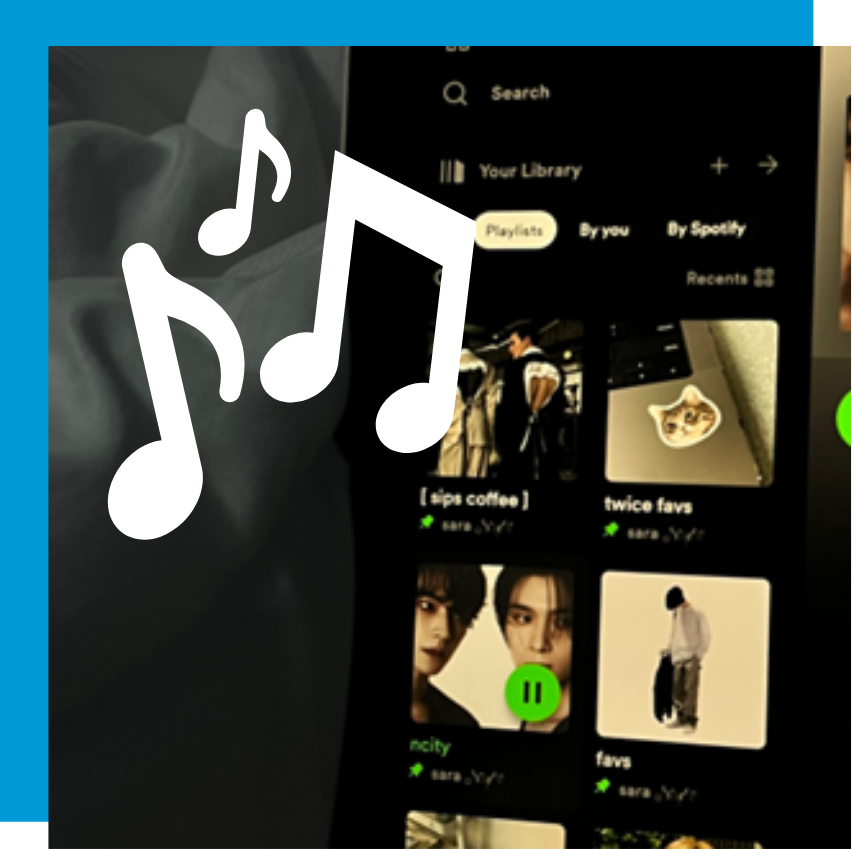
Music was another thing I held on to when I was sick. Music and lyrics are like a story that can be interpreted however you want and provide an escape. One song I regularly listen to nowadays is WITHOUT YOU by NCT U. It's about feeling alone and isolated, but it also shows that all it takes is one person to turn your life around and help you see better days. It makes me think of my friends who never left my side when I got sick and my mom who was with me 24/7.
I have a lot of good memories with my mom in the hospital. I also met some amazing people and even made some friends for life. Connecting with teens my age who went through the same thing I did and hearing their stories of survival helped me feel more at ease.
Regardless of what someone is dealing with, I think everyone has one thing they can hold on to even if they may not realize it. Maybe it’s a feeling, or a person or a small thing you do daily.
It can be hard to figure out what it is because our brain can get so filled with the stresses in life.
I think I’m now at a point where I’ve learned to enjoy my own company. I have a few solid friendships I wouldn’t trade for the world. I have good relationships with my cousins and even when I am physically alone, I don’t feel lonely.
Having cancer, and even being in remission, is such an isolating and lonely experience sometimes, but getting lost in daydreams about my future and listening to music makes me feel less lonely. I truly hope everyone has that one thing to comfort them and bring them joy, even if it's for just 10 minutes a day. I can’t say for sure things will get easier, but I think it’s still worth it.
Survive
Author: Kayla Russell
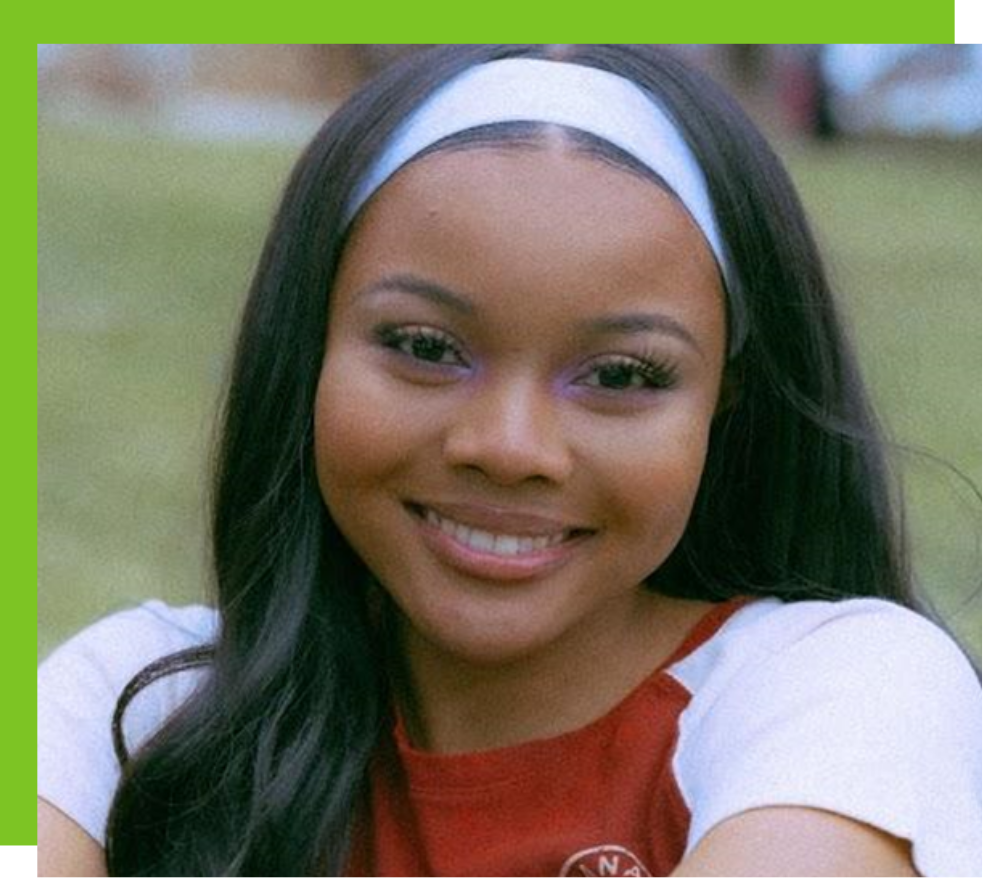
About myself: My name is Kayla Russell. I attend the University of Waterloo as an undergraduate student. I was diagnosed when I was 11 years old, and 2024 marks ten years cancer-free. I've always enjoyed writing and reading stories; I just can't get enough of them. I didn't always love poetry, though. I didn't start writing until a few years ago, and one of the things I wrote about was letting go of some pent-up feelings. Yet, the reason I will always continue to love poetry is because of the way we can relate to each other through our words. This is also the reason I wrote this piece, which was to show myself how I happened to think at the time. Nevertheless, I hope it is one that can be of some comfort to you.
"Survive, they said
But I’d rather stay in bed..."
Writing Process: I usually write my poems in a journal and then type them up on my computer just as a second copy or like an electronic diary, if you will. Sometimes I start writing something and then it ends up being completely different. A peaceful, cozy spot where I can curl up or sit comfortably is where I usually find myself writing. Writing is like my release. When I’m feeling sad or irritable, I write. I write to escape, or I write to find some answers. I started writing these poems to help create a safe space for myself to know that it’s okay to feel however I feel. Also to remind myself that there's no right or incorrect way to feel about what happened to me; it’s a journey.
Survive, they said
Survive, they said
But I’d rather stay in bed
All day long
Where my pillow
Sings sweet songs
Of rest here
But something inside me
Has a little more energy
Than I did yesterday
So, I make my way
Out of bed
And stand in front of the mirror
Surprisingly,
I don’t look as tired
But I'm worn out on the inside
Something inside of me
Says hide
But I wipe my tears
And walk away from the mirror
It will be okay
Tomorrow’s another day
Survive, they said
For every poison that wishes to
Kill me from the inside out
That is not the thing that will kill me
The cages of my mind with thoughts
That are locked behind
Bars, yelling the same thing
You’re not good enough
You will never survive this
They were right, you probably won’t make it
I am weak from the thoughts that drain the life
Out of me
Who is she?
Who is the one who’s done with life
Who is the one who doesn’t let strife
Come in between her and her dreams
Who will let me dream?
So, I have to take the prisoners
All of the emotions I’ve locked away
And say
It’s okay to feel
But I can’t complain
The comfortability from laying in a bed of fearTells me
Nothing can hurt me if I pretend it’s not real
I can just spiral in doubt
Until I fall asleep with the pain that
Lulls me away to the land of dreams
When I wake up, I know what they will say
Survive, they said
It’s only up
From here
Giants
You have beautifully risen
Despite all the bad
That has happened
Your triumph is a beanstalk
Reaching new heights
Tackling new giants
And still growing

Am I Still Dreaming?
A very scary
Dream of mine
Is for all
My nightmares to come true
Is it bad that I wish to
See how strong I can be
To fight off all
That haunts me?
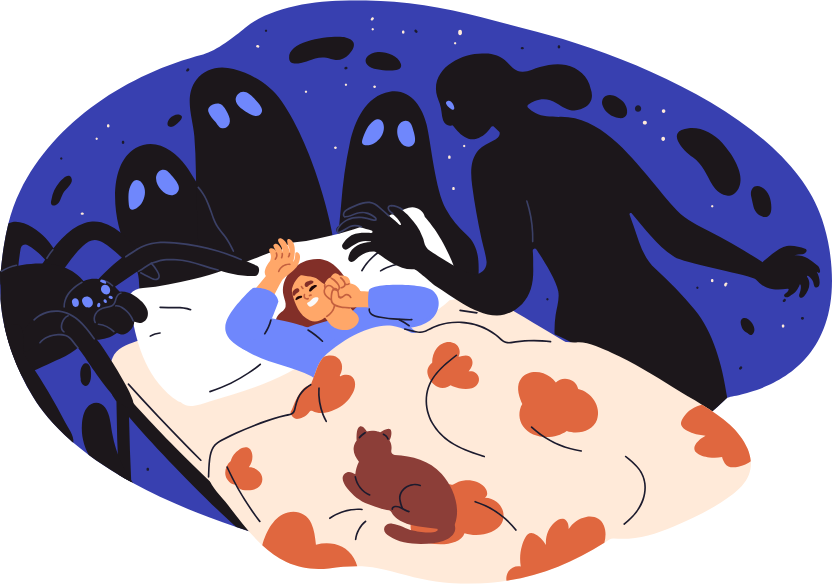
Volunteering: Apply for the Experience, Stay for the Benefits
There are so many benefits to volunteering!
Whether it’s delivering meals to seniors or walking shelter dogs, being a peer mentor or being part of a team organizing an event, when you volunteer, you connect with others and you often see that you’re making a positive difference in their lives or in the community. So, it’s no surprise that volunteering can have both physical and mental health benefits. Research has shown that adults with disabilities or chronic health conditions who volunteer often see an improvement in their pain levels. Volunteering can also reduce stress, anxiety and depression.
Volunteer for One Day or More – The Choice is Yours!
Volunteering also provides a great opportunity to test different educational or career paths. Whether you have a job in mind, or are unsure what field interests you, volunteering allows you to look for opportunities that require various levels of commitment. It might be a one-day event, a two-week long project, twice a month for a year, or other…you have the flexibility to decide what to pursue based on your capabilities and time availability.
Add Volunteer Experience to Your Resumé
If you’re also looking for paid employment, there are ways that you can use your volunteer experience to help get a job. As a volunteer, you might be on the organization’s email list where job postings are sent out. You can also develop internal workplace connections to ask about open or upcoming positions, and a recommendation. References are often required when applying for jobs, so having someone that can speak directly to skills you have demonstrated is incredibly valuable. Adding volunteer experience and the skills you have developed from it to your resumé will help with your application to other jobs!
Seek Accommodations as Needed
If you have a disability and/or need accommodations, you can still volunteer! Read the volunteer posting carefully to see what you are expected to do in the role. If you need support with any of the job requirements, you can start a conversation about this when going through the application process.
It can be intimidating to bring up a need for accommodations, but if you feel passionate about a position, do not let that be a barrier. Remember that you are entitled to ask for accommodations and many community agencies that hire volunteers are eager to provide these if possible. You are the expert in this situation, so be prepared to explain what accommodations would be most beneficial to you. Remember, you do not have to disclose a diagnosis or any medical information if you don’t want to.
As you can see, while you’re helping others, there’s a lot you can get in return. So, consider getting out there to volunteer!
Need help with applying to a volunteer position? Contact your POGO School and Work Transitions Counsellor so they can help you prepare for the volunteer experience.

*This article was adapted from the S2S Network presentation “Volunteerism: Empowering Yourself and Others” by childhood cancer survivor Payton Tenebaum. Information about this year’s S2S Network presentations is coming soon!
Q & A with our Newest POGO Counsellor

WHY DO YOU WANT TO BE A POGO TRANSITIONS COUNSELLOR?
I have always been drawn to roles that involve supporting individuals within our community and I have experience with helping people navigate various transitions in life. Joining the POGO team represents a new and exciting opportunity for me. I have not previously worked with cancer survivors, so this is a unique learning experience. We all encounter transitions at some point, and being able to contribute to someone’s journey by providing the help they need is incredibly rewarding to me.
WHAT IS YOUR FAVOURITE PART ABOUT YOUR ROLE?
My favourite aspect of the job so far has been getting to connect with people. I enjoy engaging in conversations and getting to know individuals on a personal level. It’s also really great seeing how committed the whole healthcare team is to assisting individuals who have cancer.
WHAT IS THE HARDEST ONCOLOGY WORD/TERMINOLOGY YOU HAVE HAD TO LEARN?
There’re a few and I’m definitely still learning, but if I had to pick one right now it would be myxopapillary ependymomas, which I have learned is a type of brain tumour.
WHAT HAS BEEN THE BIGGEST SURPRISE WORKING WITH SURVIVORS?
The biggest surprise for me has been the lasting impact that cancer treatments can have on an individual’s body later in life. Before stepping into this role, I hadn’t fully grasped the extent of these long-term effects. Nevertheless, it’s remarkable witnessing the support system that surrounds cancer survivors from the dedicated teams at the POGO AfterCare Clinics.
DOGS OR CATS?
Without a doubt, dogs. Maybe it’s because I’m allergic to cats, or maybe it’s just that dogs have mastered the art of unconditional love and I will take that any day, especially since it comes without the sneezing!
WINTER OR SUMMER?
Most definitely summer! I dream of living somewhere where the weather is warm all year round. I find there is so much more to do in the warm weather!
WHAT IS YOUR FAVOURITE PUMP-UP SONG RIGHT NOW?
Maybe not considered a “pump-up” song, but one song that has been on constant repeat for me that I love to belt out to is “White Horse” by Chris Stapleton.
WHAT IS THE BEST PIECE OF ADVICE YOU'VE EVER RECEIVED?
The advice I received that has stuck with me is to romanticize your life. Essentially, make even the smallest things in your day-to-day life seem amazing and exciting. Every Sunday, I write down the best thing that happened to me on the weekend. Sometimes there are bigger moments we can think of easily, but sometimes it’s nice to think of the small moments, too, like having the time to drink a hot cup of coffee before heading off to work!
Creative Corner with Ramjot
Growth
When I first started creating this sculpture, it was an absolute mess. The structure and stability of the tree were a challenge to figure out but slowly it all started coming together. It was like putting the pieces together in a puzzle. I didn't fully understand why I created a tree until I started sculpting every little curve or indent, gluing on the leaves and adding the finishing touches. The tree symbolized my growth. Just like me, the tree encountered many obstacles when it was being sculpted. It took hours, days, weeks to finish and at some point, I felt like giving up on it. The tree expressed me. It started wonky but the more time and effort I dedicated to it, the stronger it got. Similarly, when I was recovering from my cancer treatment, it was hard to fit in with my peers at school and integrate into my new reality. But as the years went on and I got out of my comfort zone, I grew to be the best version of myself. My piece, Growth, shows the journey of my life and how I've grown into the person I am today.
Check out other Creative Corner works done by Dorian and Xander
Successful Employment Through Targeted Hiring: A Survivor Experience
What is Targeted Hiring?
Targeted hiring is a type of initiative used by public and private organizations to address employment barriers and help with the under-representation of designated groups to achieve equal employment opportunities. This is accomplished by narrowing the pool of candidates to specific categories of candidates, such as individuals with disabilities.
Q & A With a POGO School and Work Transitions Client
Q: What can you tell me about your recent interview where you were successful in being hired?
Client: I interviewed over the phone, which was nice as travelling can be difficult for me due to my disability. The questions were pretty much what I prepared for because my counsellor and I went through common interview questions and practiced them together over Zoom. We also discussed scenarios and did some mock interview style discussion. Because of this, I was able to answer the real interview questions with confidence.
Plus, the interviewers were very informative about what to expect on an average day.
Q: How is your employer being accommodating to you as a person with a disability in the workplace?
Client: The general attitude of my workplace is genuinely team-oriented! I was asked if I needed a chair, and from day one, I have been greatly encouraged to ask for help. There's even mental health support, which is quite a relief.
Q: Was your POGO Counsellor a resource in this process? If so, how did they help?
Client: My counsellor was very helpful during the whole process. Finding this job and ensuring my resume was in good shape, practicing for the interview, and ensuring I got placed at a store location I preferred is honestly going above and beyond.
